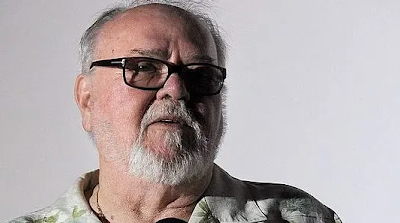Source: Variety
The beginning of a new year should be a moment of hope and optimism, especially when a year as despised as 2020 comes to an end. Indeed, with the arrival of 2021, one would like to think that there would be a change of pace in regards to the ongoing COVID-19 pandemic. Not only have vaccines been approved for distribution throughout the country, but a new administration is set to begin work by January 20th after President-Elect Joe Biden is sworn into office. Still, even though these events will hopefully start to change things in the future, they will not improve things overnight, and no one should expect a return to normality any time soon. This is something that one needs to keep in mind when it comes to the reopening of businesses throughout the nation, especially the film industry. In fact, recent announcements from the major studios about the release of their biggest upcoming features serve as a reminder of just how far there still is to go.
The first of the postponement announcements came earlier this week when it was reported that Sony would be pushing back “Morbius”, a horror-fantasy superhero film starring Jared Leto, from its previous March 19th release date to almost seven months later on October 8th. To some, the film being released so close to Halloween makes perfect sense given the film’s subject matter (its premise revolves around its main character gaining vampire powers), but it’s clear to many that the date change has less to do with wanting to capitalize on the coming holiday and more to do with the uncertainty that releasing the film in March will be profitable for Sony, since movie theaters are not expected to be completely up and running by then.
What’s interesting about Sony’s announcement is its need for further pushback comes even after it has already postponed so much of its product. When the pandemic began last March, causing most major studios to change the release dates of their films to only a couple months into the future (under the optimistic belief that things would quickly return to normal sooner than later), Sony took a more drastic approach. Each one of its films originally planned to come out in 2020, including “Ghostbusters: Afterlife” and “Peter Rabbit 2: The Runaway”, was taken off the schedule and instead planned for release in the next coming year. In hindsight, this was probably the smartest decision of any of the major studios, as the pandemic continued on throughout the year and prevented any major blockbusters from turning a profit on theatrical sales alone (the few that were released in theaters, most notably those from Universal, were also made available for home viewing either on the same day or a few weeks afterward).
Reports of another postponement came shortly afterwards regarding “No Time to Die”, the latest in the long-running James Bond franchise currently distributed by MGM domestically and Universal overseas. The film had most recently been set for release on April 2nd (nearly a whole year after its original date in 2020), but recent reports suggest that the studios are planning to postpone the film yet again and have it come out in November of this year. At the time of this writing, neither MGM nor Universal have confirmed these rumors, but given Sony’s recent decision to push back “Morbius”, it would come as no surprise to hear that an even more high-profile picture like “No Time to Die” would also receive an additional push back.
Both these examples prove what many industry experts have been exclaiming repeatedly throughout the past few months: movie theaters are not ready to reopen, at least not ready enough to allow big-budget blockbusters to turn a profit. Many states have committed themselves to upholding this judgement, as theaters in states like California and New York remain closed as mandated by local governments. Still, in states where such regulations have not been put into place, movie theaters are struggling to keep their doors open, as the lack of appealing content and limited auditorium capacities is making it difficult for them to draw in enough people to be profitable. While independent films and older classics (which many theaters are charging at a lower price) are available for exhibition in the few theaters currently open, they aren’t enough to lure in people who currently prefer film viewing in the comfort of their homes.
At the moment, Warner Brothers seems to be the only studio willing to compromise when it comes to how it distributes its films. Last month, the studio made its most recent superhero movie, “Wonder Woman 1984”, available simultaneously in both theaters and on its streaming platform HBO Max, and it plans to do the same for most of its films set to premiere in 2021, the latest including potential awards contender “Judas and the Black Messiah” and the live-action/CGI hybrid “Tom and Jerry”. Many have argued, however, that this release strategy is less beneficial to movie theaters than it is to Warner Brothers, since it won’t allow them to sell as many tickets as they would if the films were released only in theaters. This is currently the case with “Wonder Woman 1984”, which has only grossed $32 million in the United States so far, a total much smaller than any theater chain would want from such a highly anticipated blockbuster.
So far, no other studio has made such a commitment, though many have speculated Disney could be the next to do so. Its latest animated feature, “Raya and the Last Dragon”, is set to come out in March simultaneously in theaters and for a premium fee on Disney+. Recent rumors suggest the studio could do the same with an even bigger film, the Marvel film “Black Widow”. Should this happen, it could serve as the dam breaker for all studios to consider same-day theater/streaming releases.
Will this be the case, or will studios just keep pushing their films back? No one knows for sure, but one thing is certain: now may not be the time for movie theaters to reopen.




